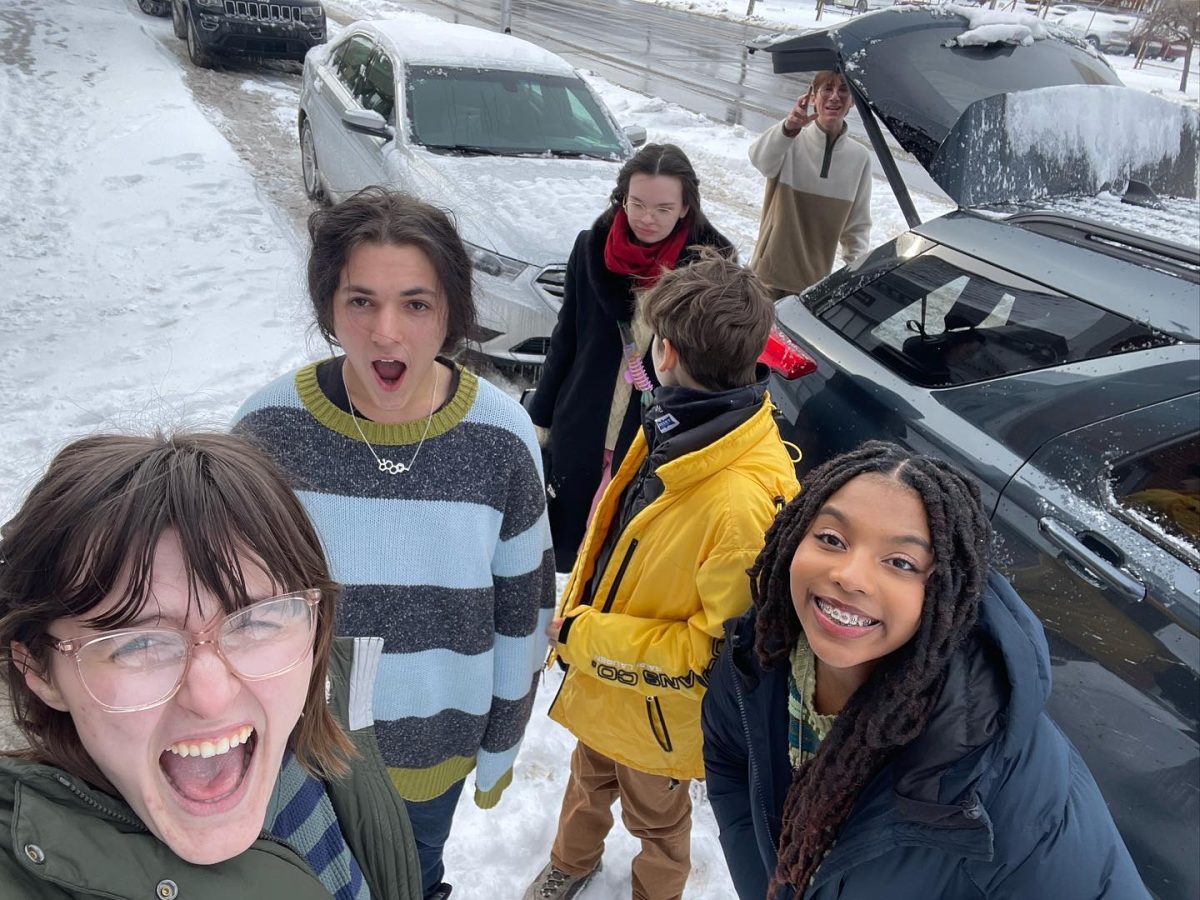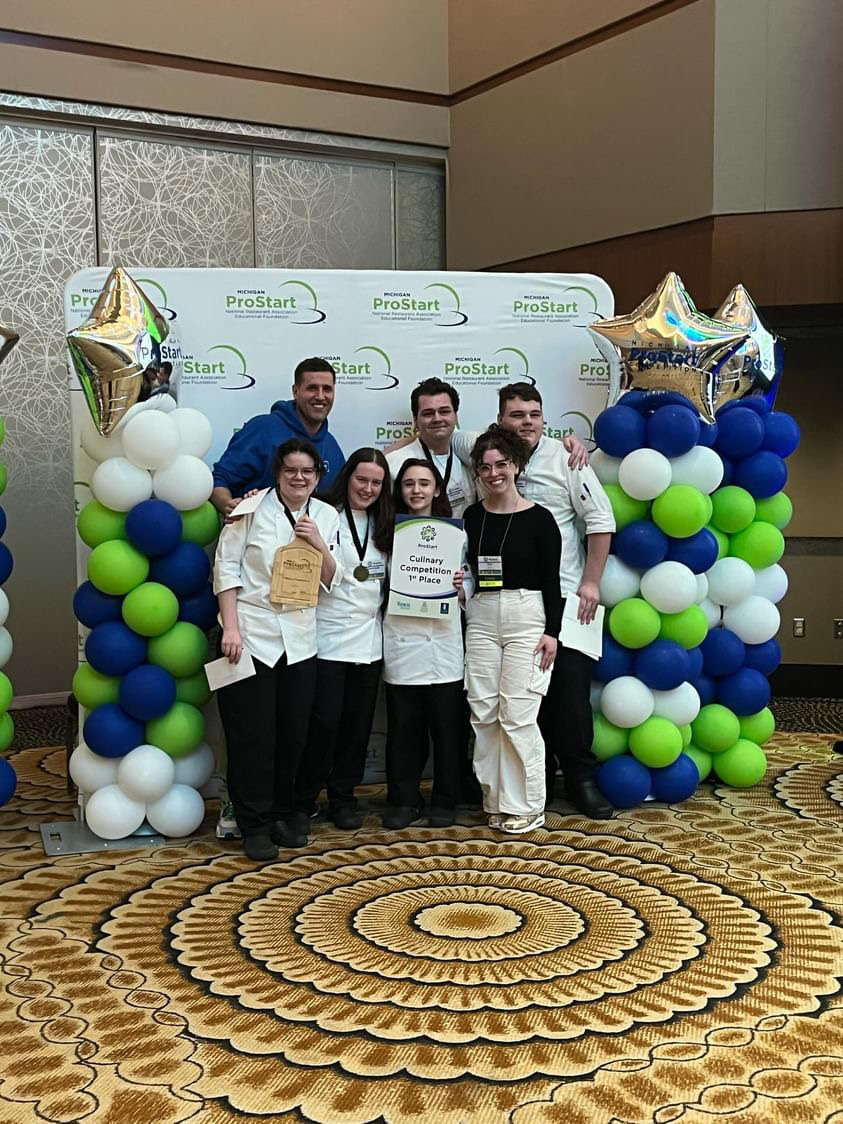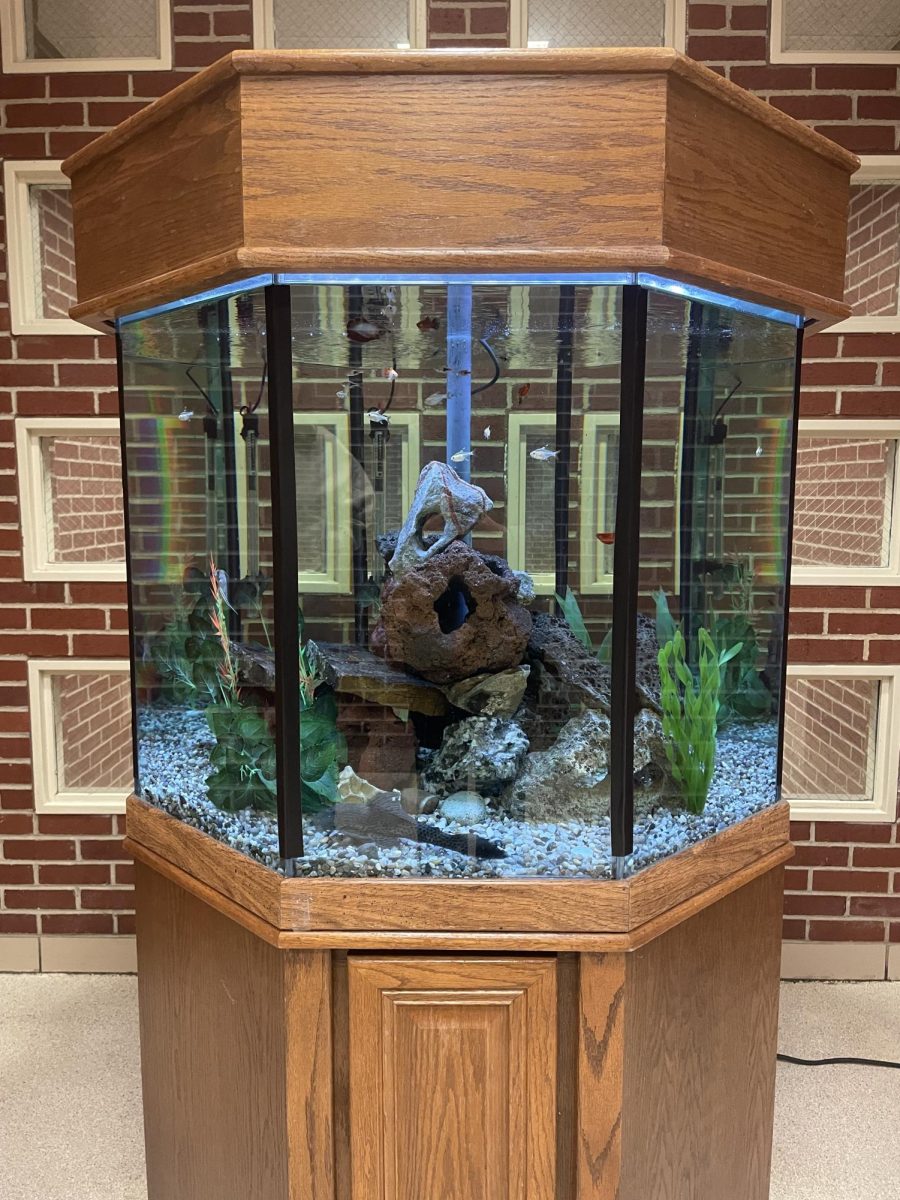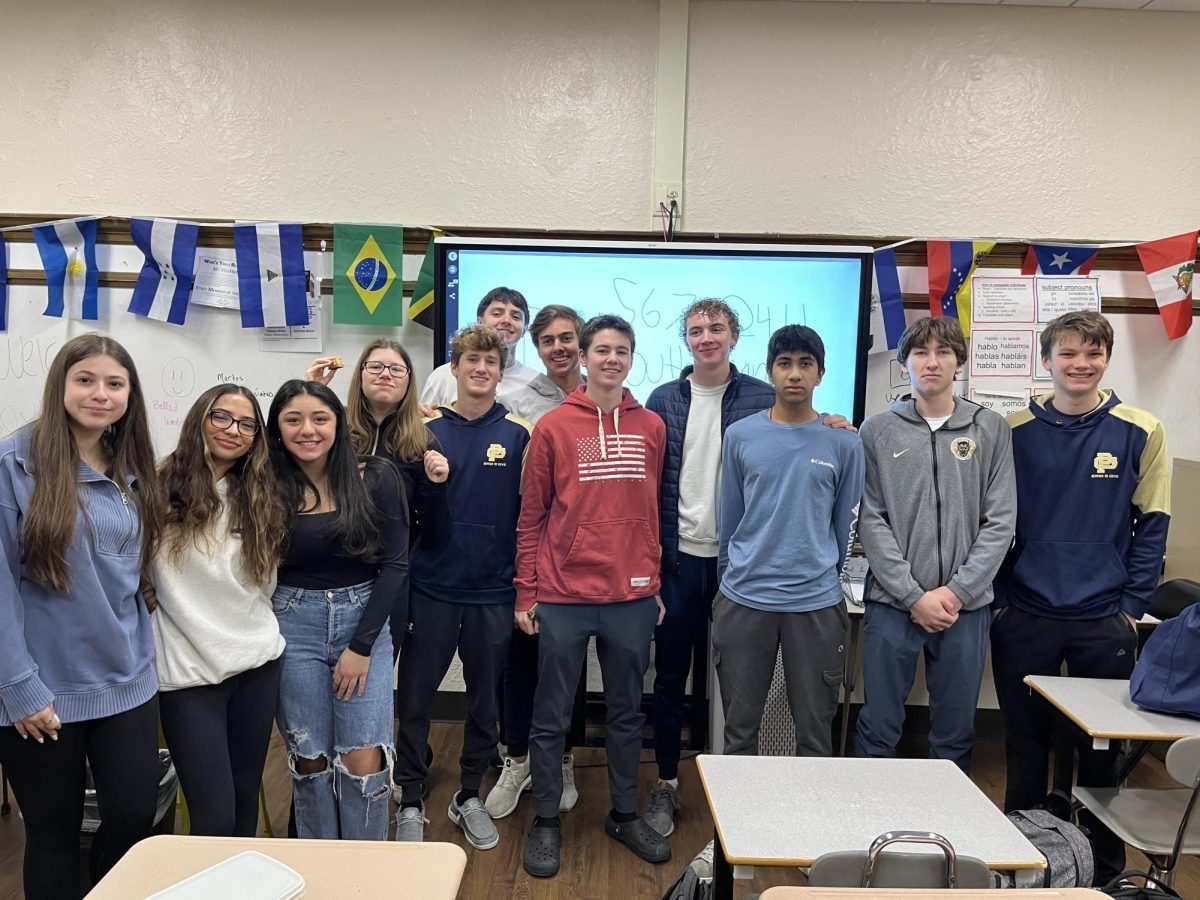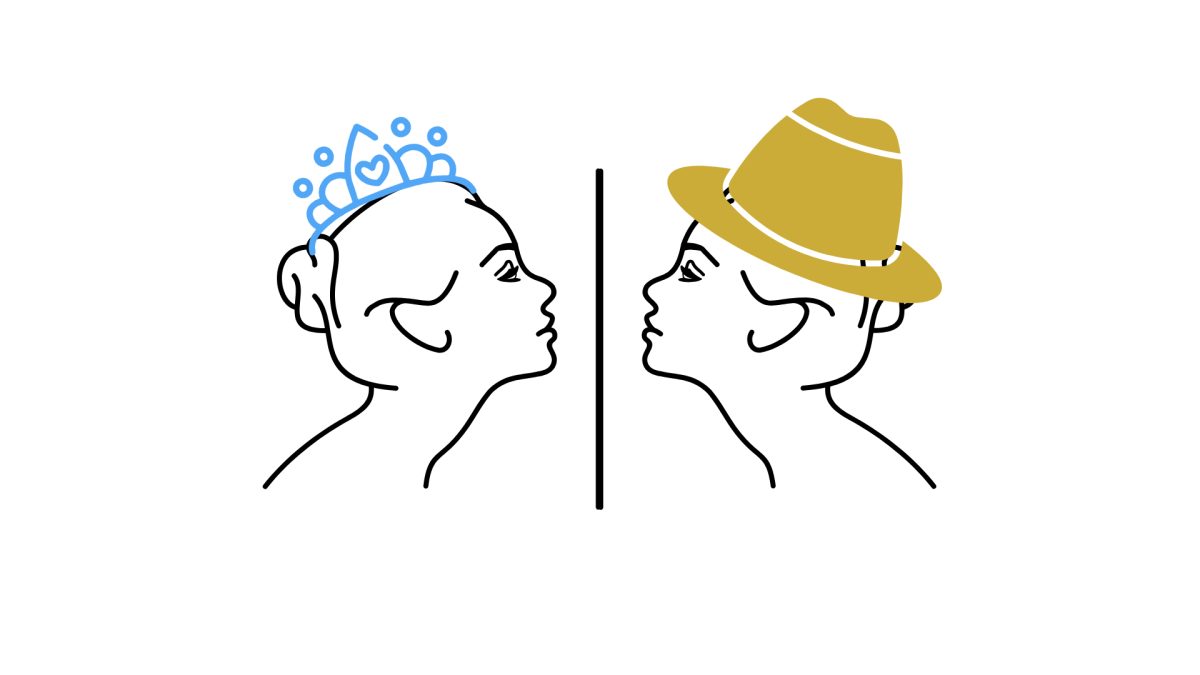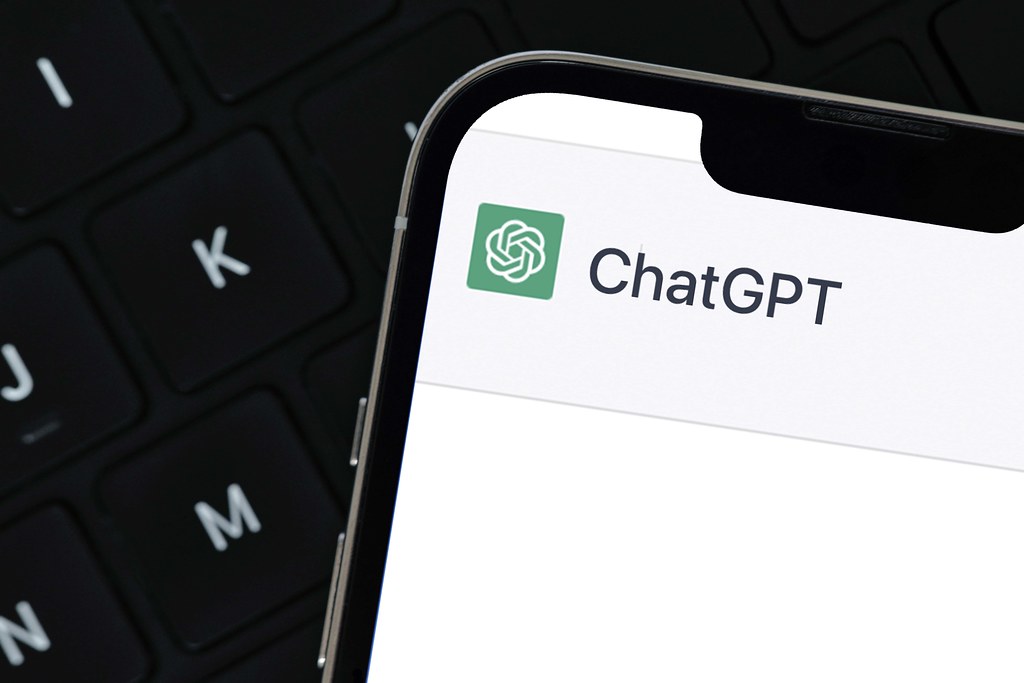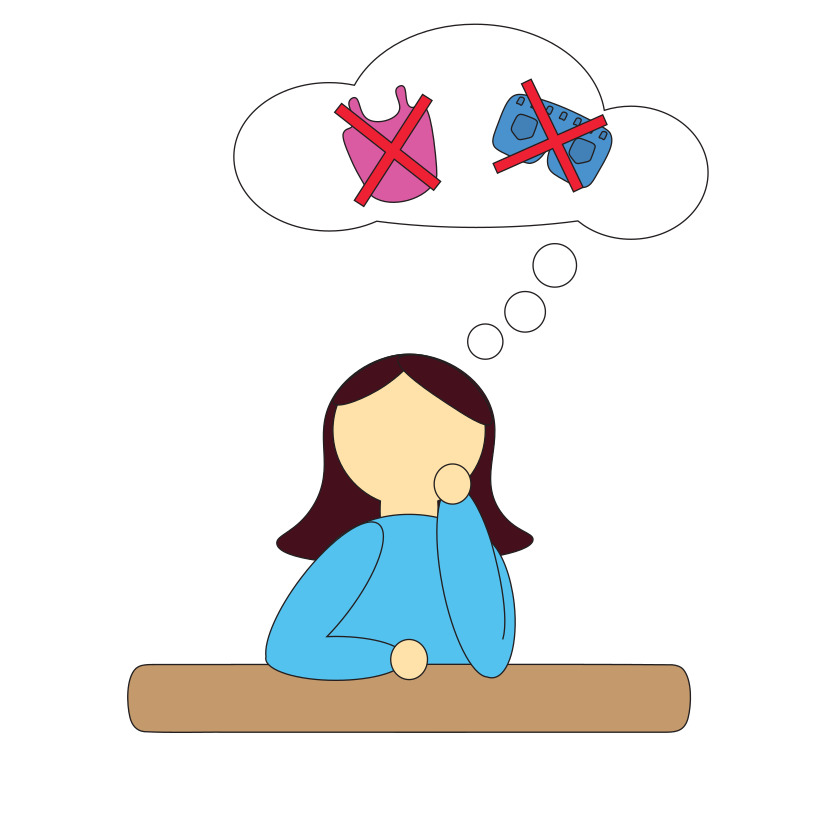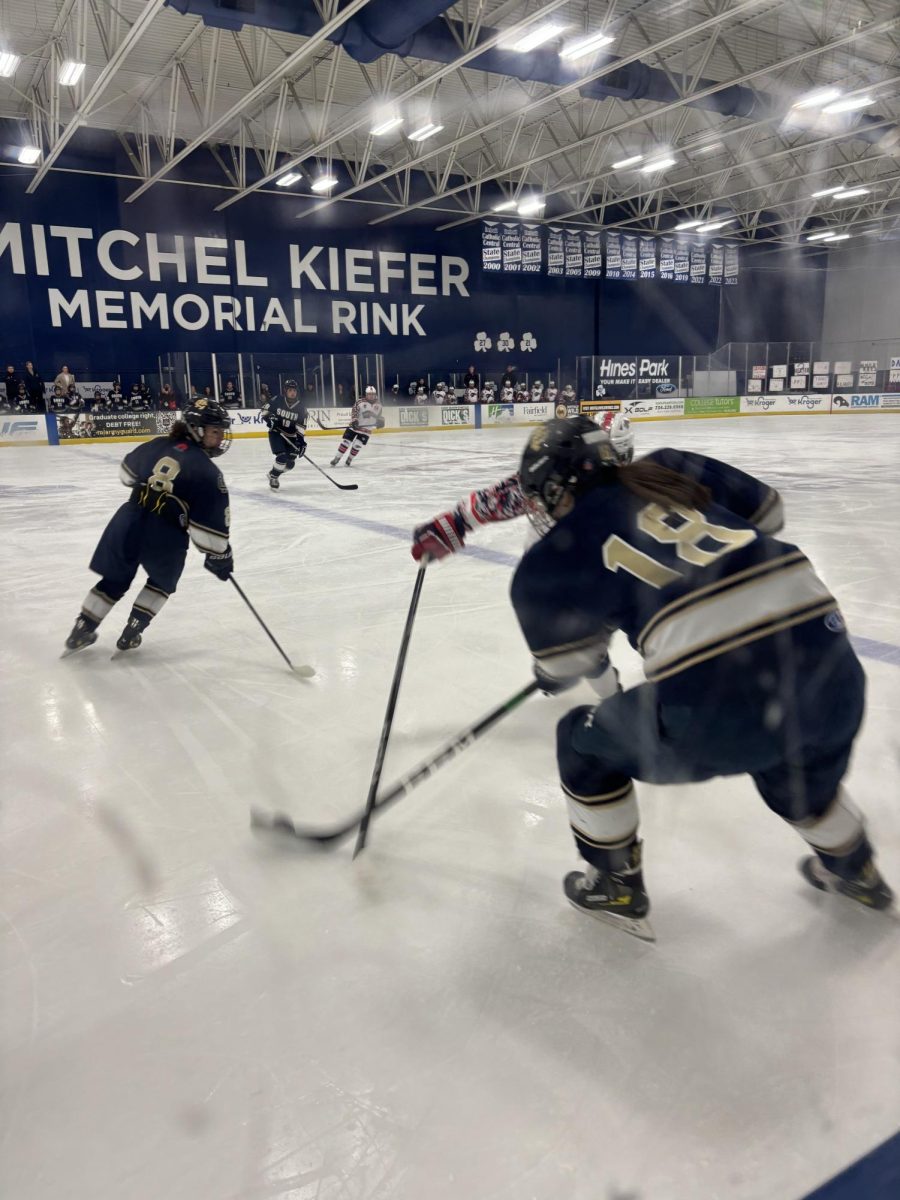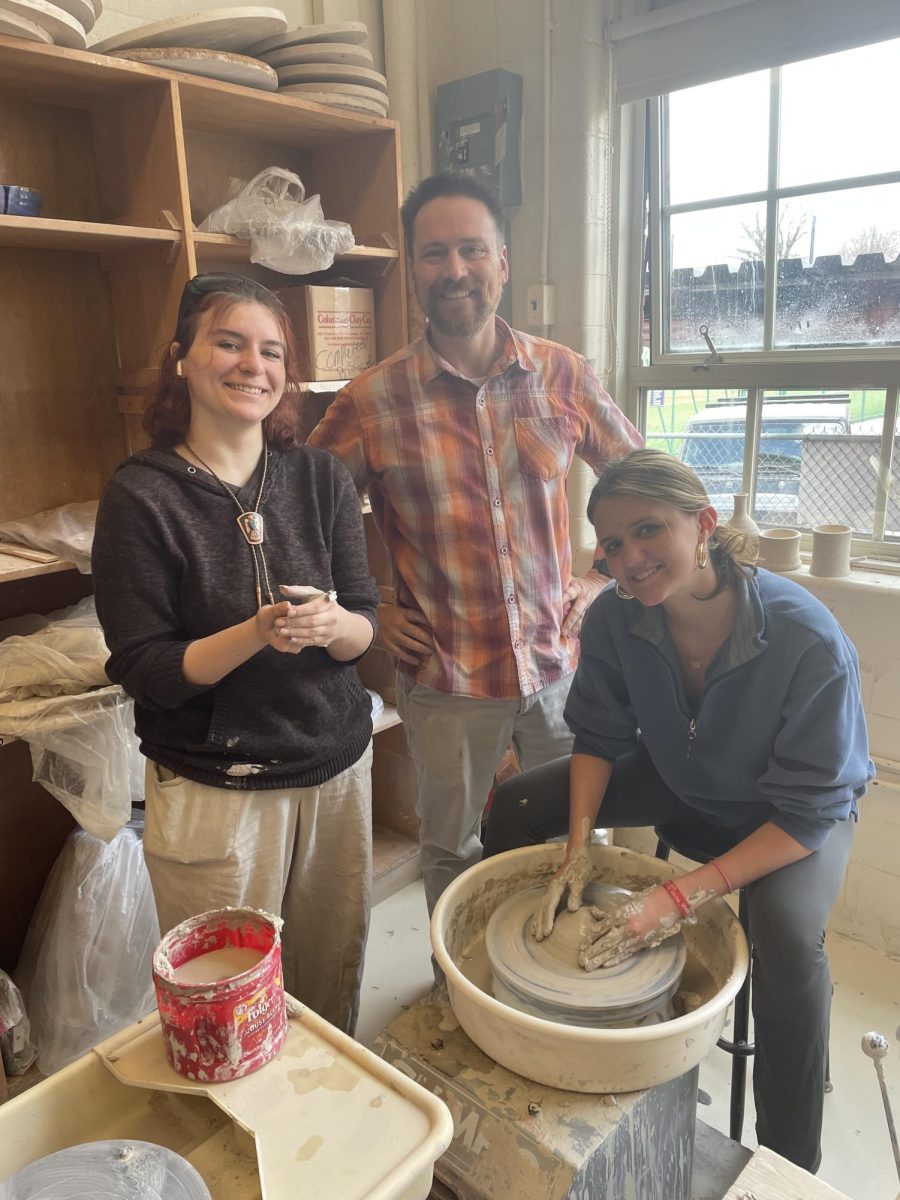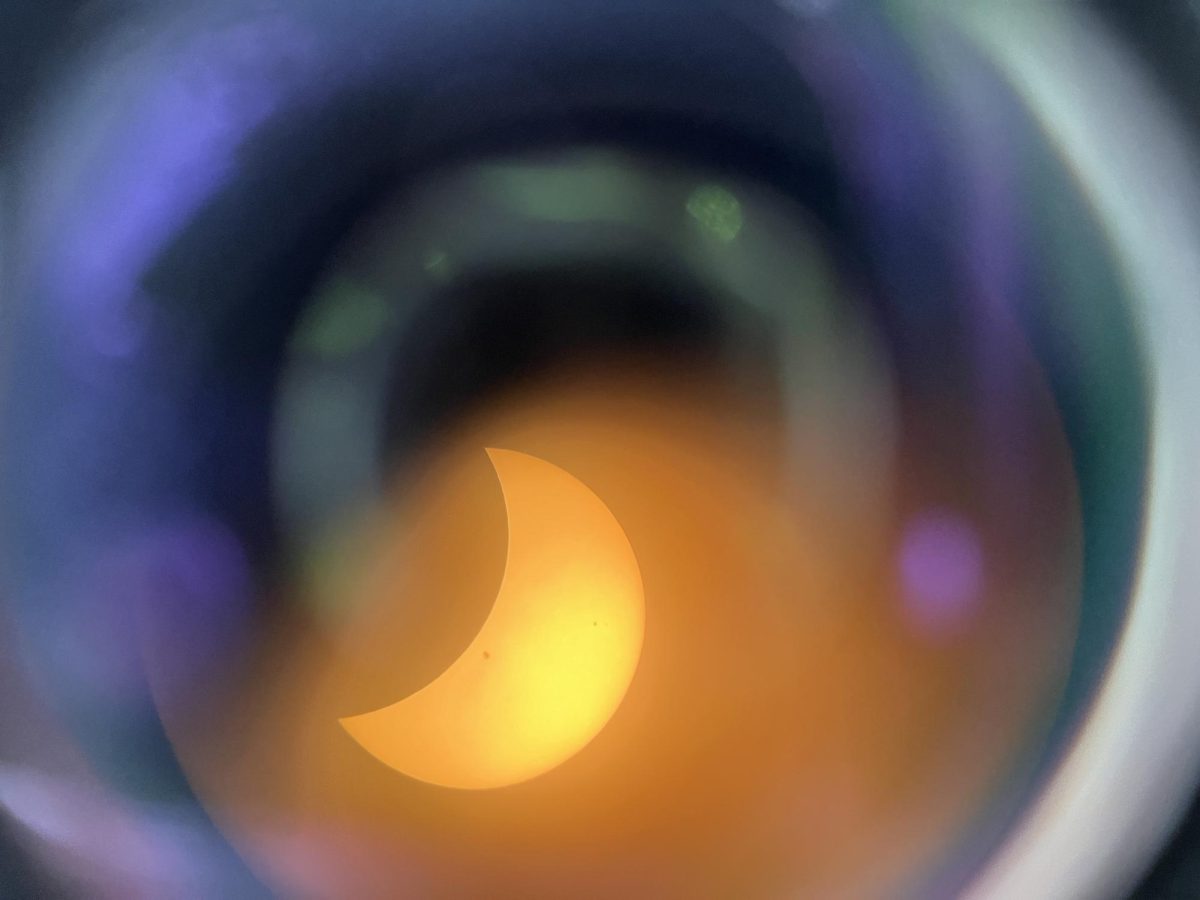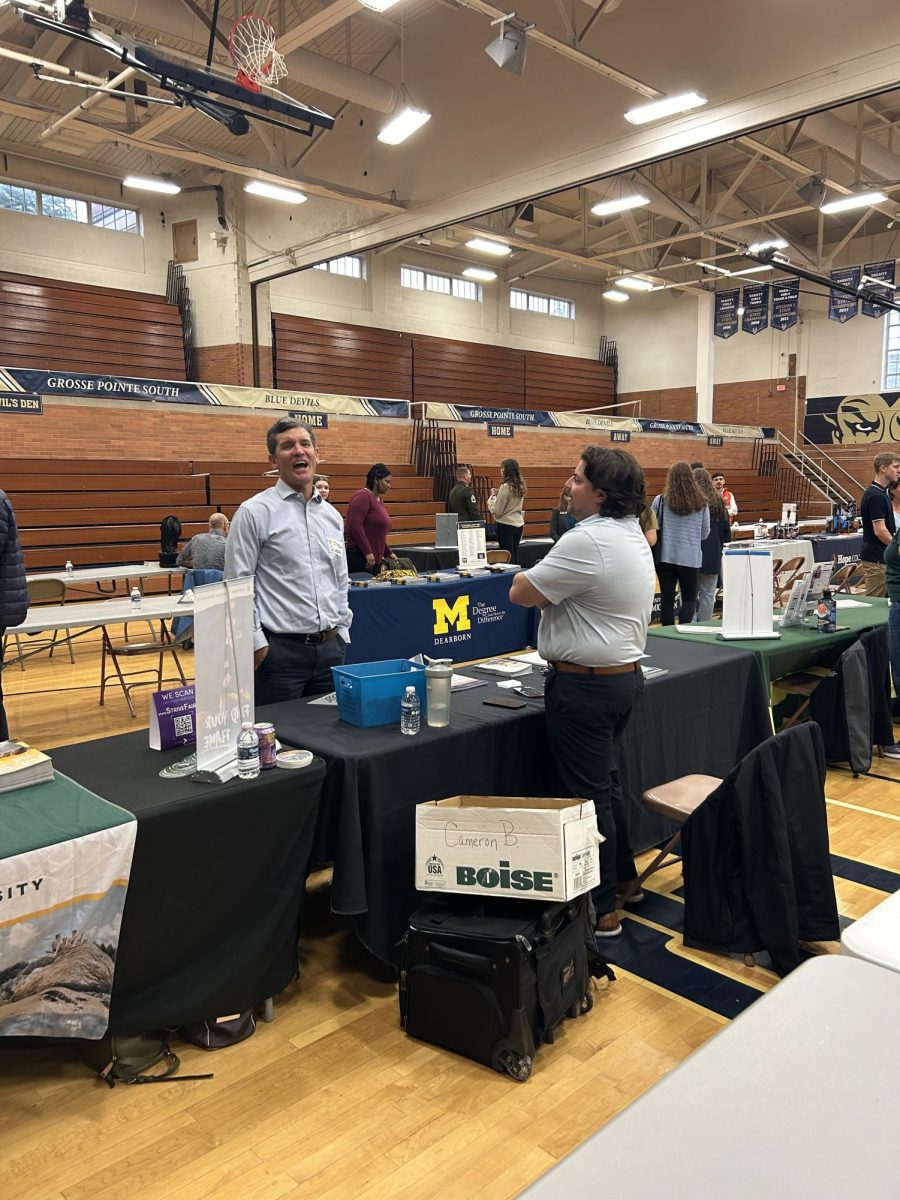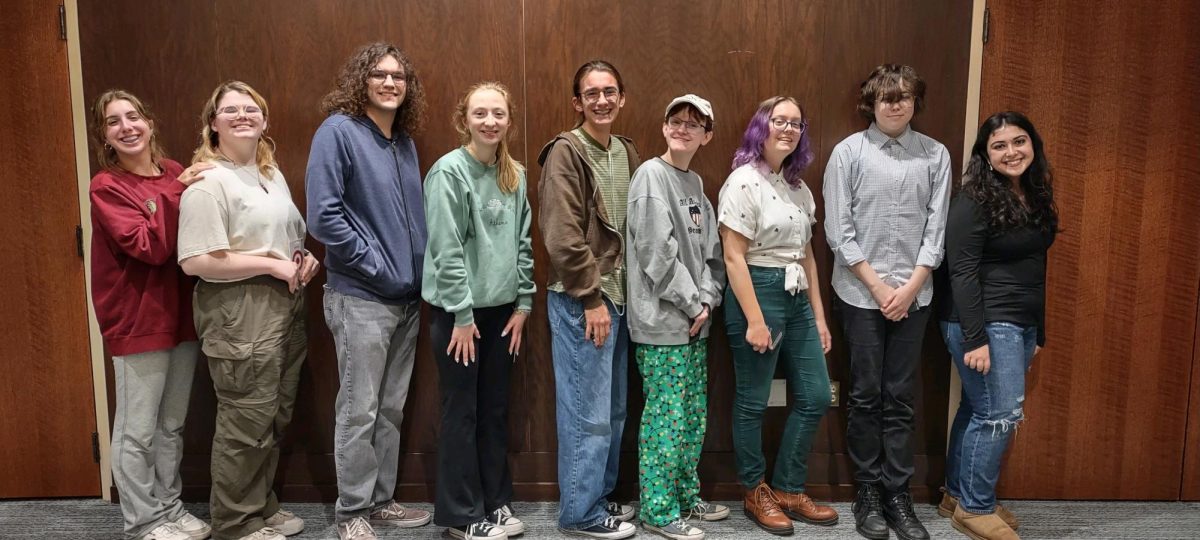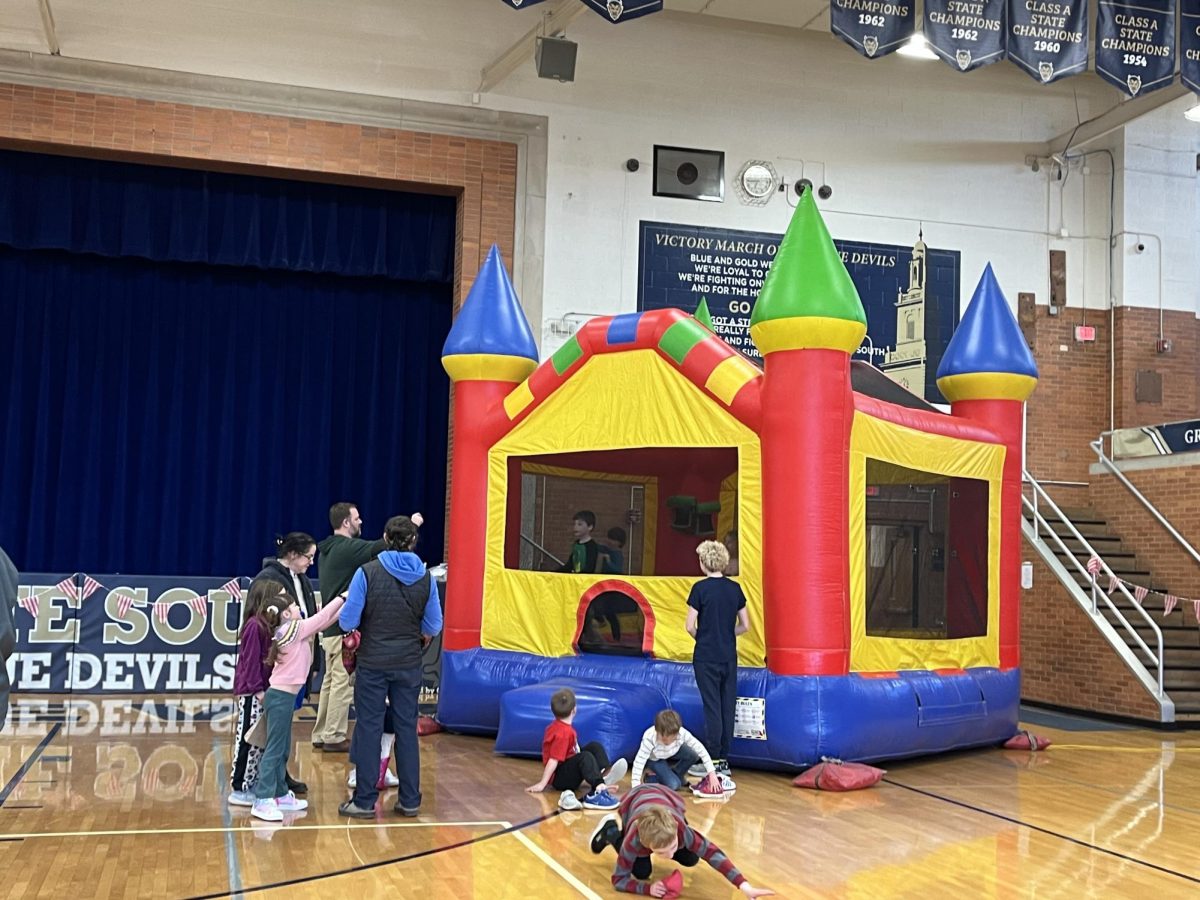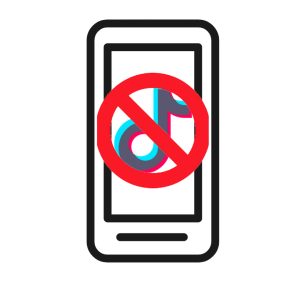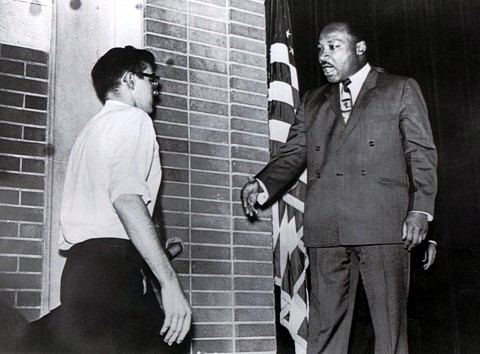By Emma Andreasen ’17 | Multimedia Editor
Frank and Ruth Zinn and their friends hurried through the cold and packed parking lot into the gym, a sense of excitement and anxiety about them. The couples were going to Dr. Martin Luther King, Jr.’s controversial speech, held at Grosse Pointe High School (now known as Grosse Pointe South) on March 14, 1968. Unknowingly, the Zinns and and their friends were entering what was one of Dr. King’s last speeches. He died just three weeks later, on April 4, 1968.
The gym was filled with people, both in support and against the presenter.
“I was excited about the controversy and wanted to show my support for Civil Rights,” Ruth said.
Despite the controversy, an estimated 27,000 people braved the cold like the Zinns.
Dr.King was invited to come by the Human Relations Council to talk about the issues of segregation and racism, especially in Grosse Pointe. The Human Relations Council was created because realtors in the area had developed a point system in hopes of keeping specific ethnic groups out of the community. They sponsored Dr.King’s visit.
“The racism had become a pretty big and unfortunate issue in Grosse Pointe,” Frank said.
There was a lot of police present at the speech at the request of Jude Huetteman, who was the president of the Human Relations Council and therefore in charge of the events that transpired at the speech. The Council had to take out a sizeable insurance policy in case any of the protesters got out of control. All protests were led by Donald Lobsinger,the leader of a group of pacifists called Breakthrough.
Breakthrough was not against Dr.King’s views on Civil Right but on the Vietnam War. They believed . There were few who followed Lobsinger because most of the attendees were in support of Dr. King’s speech.
“I would estimate less than 10 percent were against him the crowd,” Frank said.
However, that 10 percent was enough to cause a disturbance. The hecklers were loud and aggressive, vocally attacking King throughout his speech.
“The protesters made a lot of noise,” Frank said. “And the police had to cut off the Q and A session to avoid hecklers having the floor.”
On the tape of the speech, given to Frank and Ruth by the former principal of Grosse Pointe High Dr. Joeseph Spagnoli, listeners can easily hear the noise made by the hecklers.
After the speech, an apparently shaken King said he had never encountered such vocal hostility at an indoor gathering. Although he was heckled, King was praised too. The speech was interrupted by applause 32 times.
“I was mesmerized by how (Dr.King) speaks,” Ruth said.
Even with his entrancing and powerful words, King’s event was met with a whirlwind of controversy.
“The speech was so controversial that many reporters of the day didn’t dare write about it,” Izzy Donnelly, a representative from the Grosse Pointe Historical Society, said. The articles closest to the event were published years later, some as many as 20 years after he visited Grosse Pointe. Reporters avoided the subject.
“No one will write proudly about our past,” Donnelly said.
However, his speech in Grosse Pointe did mark a turning point for Grosse Pointe and Detroit. Before King came, there had been intense rioting in Detroit because of the segregation. These riots downtown greatly contributed to the poor state the city is in today, Donnelly said.
“Tigers won the World Series the year Dr. King came, and the team had several black members which brought the city together and began ending the racial tension,” Donnelly said.
After King came, many racial issues were resolved in the Grosse Pointe community and Detroit.Both cities began working towards acceptance and eventually equality, even if these transformations were slow, Donnelly said. In Detroit, the attempts like the Renaissance center were made to reboot the productivity and repair the deep rooted damages done to the city. Downtown is still recovering from the riots but one can trace the turn from destruction to reconstruction to Dr. King.
In Grosse Pointe, the repairs were lesser than Detroit but still needed. The point system code used by realtors was dropped, allowing a larger variety of ethnicities into the Pointes. The attendance at Dr. King’s speech was so vast that his word was spread to those who weren’t present, Donnelly said. His word invoked change throughout the community, and although it was small, the change made a difference.
Because of the long term effects Dr. King’s visit had on Detroit and Grosse Pointe, Michigan was one of the first states to declare his birthday as a state holiday.
Ruth Zinn said, “I think the community has come a far way, but not far enough.”


